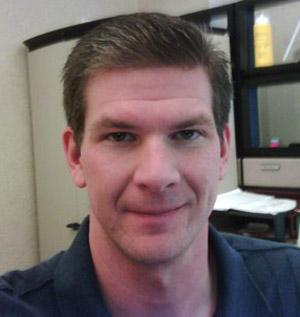
By Celine Klosterman
Bob Squires calls himself a “cradle Catholic,” but even in his late 50s, he knew he had more to learn about the faith.
So for about five years he’s taken courses in the Davenport Diocese’s Ministry Formation Program (MFP), which in September will kick off its 12th year of educating and training Catholics for church ministry. Now age 63 and still planning to take more classes, Squires is among those in the fastest-growing demographic groups in the program: people older than 60 and younger than 30.
From 2004, the earliest year in which information about students’ ages is readily available, to 2008, the percentage of students older than 60 rose from zero percent to 15 percent. During that same time period, the percentage of people younger than 30 rose from 1 percent to 8 percent.
Most participants continue to be in the age 40-49 category. Overall, the number of enrollees rose from 61 to 71.
IlaMae Hanisch, MFP coordinator, attributes part of the increase to the addition in 2004 of a second option for class format. More people also are enrolling in search of a second career after retirement or in search of a first career, she says.
“I know we had younger people joining the program when we started offering a different, non-ICN format,” she says. For the first seven years of MFP, all participants were required to meet two Saturdays a month at various sites in the diocese for courses taught via the Iowa Communications Network (ICN). But in 2004, the diocese began offering videos and DVDs of ICN broadcasts for students in the basic program to watch at their convenience. Students who do so instead of attending live ICN sessions meet just once a month for discussion.
That more flexible option appealed to Chris Wemhoff, a 35-year-old member of Our Lady of Victory Parish in Davenport. He’s a soccer coach who often has games on Saturdays, and he says the non-ICN format leaves him freer for those games and other activities his children take part in. He’s now in year two of the basic MFP coursework.
Among those who enrolled while seeking another life path is Bill Roush, a 56-year-old member of St. Mary Parish in Iowa City. Last year his youngest child left for college, and since his wife had died 12 years earlier, his home truly felt like an “empty nest,” he says. That feeling prompted him to re-evaluate his role in life, and his pastor, Father Ken Kuntz, asked if he’d ever considered the seminary.
“An awesome feeling came over me… but I also realized I wasn’t ready,” says Roush.
Instead, he applied and was accepted into the Davenport Diocese’s diaconate program. That program requires men to enroll in MFP. He’s almost completed the first and second years of basic MFP coursework through an accelerated format.
Similarly, Susan Cleveland, 30, signed up for MFP as she entered her first position in church ministry about two years ago. She had been looking into the program to further her own faith formation, but also ended up needing it for a position she took as religious education coordinator for Our Lady of Lourdes Parish in Bettendorf.
Now a minister of faith formation at St. Ann Parish in Long Grove, she’s wrapping up coursework for the catechetical track and basic year two of MFP.
“It’s helped me learn so much.” She especially appreciated receiving new insight into canon law and into preparing children for their first Communion and reconciliation, she says.
Ultimately, the quest to better understand Catholicism is what draws many MFP students.
Though courses Squires has taken have been relevant to his ministerial roles — as the evangelization and stewardship director for Iowa City and finance committee member for St. Mary Parish there — he signed up chiefly for his general knowledge. So far, he’s completed the catechetical, liturgical and finance administration tracks, and plans to eventually sign up for parish life administrator courses, too.
He’ll let the Holy Spirit lead him to any other uses for his MFP education, he says.
Though Wemhoff wants to eventually consider the diaconate, he also signed up primarily to discover more about his faith. He’s learned much through helping with the Rite of Christian Initiation of Adults at his parish, but “I was looking for that next level of learning.”
MFP has helped him find it. “I’ve appreciated my religion a lot more,” he says. He’s come to notice differences between parishes and dioceses and says the program has helped him understand why a diocese might form a certain policy, for example.
Roush, a former Methodist who never used the term “sacrament” while growing up, says, “I really feel MFP has answered a lot of questions about my faith.”
Still, “I feel I’ve only scratched the surface because there’s so much more to learn.” Since entering MFP he’s shifted his plans from the diaconate to the priesthood, and he hopes to become a seminarian for the diocese next month.
“I highly recommend MFP for any person who really wants to get involved in the church because it opens up so many doors,” Roush says.
Classes begin Sept. 12 for MFP basic year one, and Sept. 19 for the catechetical specialization. Application forms are available at www.davenportdiocese.org: Under the Offices tab, click Faith Formation, then Lay Ministry.
For more information, contact Hanisch at (641) 791-3435 or hanisch@davenportdiocese.org.








